Nigeria
A Long Tale of Blood, Oil and Water
The Gulf of Guinea with its 11 countries — eight of which have proven oil reserves and five of which are major fuel producers, was labelled as the world's most dangerous maritime zone in 2020.
The reputation comes in light of attacks on oil tankers which have risen exponentially in recent years. Incidents that many countries in the region are still struggling to get under control.
One might question if scattered efforts have been going about the situation all wrong — focusing more on the symptom and not the source of the problem.
The Impunity of Niger-Delta Oil Spills
The massive BP oil spill and cleanup in the Gulf of Mexico from June 2010 garnered a boatload of international media attention, not even comparable to the many spills that had been taking place and are still spills taking place in Nigeria's oil-rich Niger Delta region.
The editor of the Washington-based Africa Focus Bulletin website, William Minter, recently posted research that had been done on the situation at the time titled, 'US/Nigeria, By Way of Comparison.'
"There are estimated to be several thousand spills, smaller spills a year, but they add up in the Niger Delta. I think the difference is just that attention gets paid when it happens close to the United States, when it is a big dramatic incident and there is immediate political pressure on the company and on the government at all levels to do something about it," he published.
Research by the World Conservation Union and Nigerian government agencies indicate that on average every year over the past 50 years the oil spilt in Nigeria has been equivalent to the 1989 Exxon Valdez spill in Alaska.
That spill was estimated at about 250,000 barrels.
With the general disregard and non-response to the numerous cries for help from the local community, some people decided to take matters into their own hands.
The Black Gold Behind the Piracy
The attackers — labelled as Pirates, have mastered the use of weapons as they carry out professional and strategic operations.
Maritime piracy emerged with the first armed insurgency movements against the federal government of Nigeria and oil companies in the Niger Delta, following the example of the Movement for the Emancipation of the Niger Delta (MEND).
They were activists who attacked offshore rigs both in protest of the oil industry's waste and pollution of the Delta's rivers — compromising the livelihood of millions of fishermen.
The men also expressed the indignance and demands of the local communities mainly in the Niger-Delta region who still receive no direct benefits or development from the crude oil obtained from their lands.
In 2011, John Togo, the late leader of the Niger Delta Liberation Front (NDLF) — a group that also operated in maritime piracy, expressed the reason for the pirate attacks on the oil industry.
"It is responsible for the chaos in the Delta and in Nigeria. They are not giving us what belongs to us. We are not benefiting from the oil windfall. With its waste, the industry is polluting the Delta's rivers and attacking the livelihoods of millions of fishermen. We want the government to take action to combat this. Second, we want action to be taken quickly to develop local community infrastructure. Until these conditions are met, we will continue to attack them."
According to a former MEND leader amnestied by the government, oil companies and local authorities are obstructing the rights of communities to claim their rights. "We need to scare the companies and the government in order to force them to change their attitude," he said.
True statements that seemed to go unheard or dismissed by the various parties involved as the exploitation continued — and hence, so have the attacks.
The Monsters You Made
Today, there are around ten armed groups operating in the area with sophisticated military equipment. They also have a good knowledge of the delta, where they are involved in brigandage, mainly focused on oil assets, including pipeline sabotage, but their main activity takes place in international waters.
Some communities in the Delta view them as a group of 'Robin Hoods' and even support the organisations as they approve of their struggle for a better redistribution of the oil windfall.
According to a local chief, maritime piracy is increasingly becoming an obligation, as the only activities for the region's young people are fishing and farming, which are now hampered by oil spills.
Pirates in the Niger Delta mainly target medium-sized tankers that come to take supplies off the Nigerian coast. While the hijacking of tankers is one of the best-known activities, the kidnapping of crew members remains the largest and most lucrative.
Kidnappings increased by 40% in the Gulf of Guinea in the first nine months of 2020 compared to last year. There were 132 attacks from January to September, compared to 119 incidents in the same period last year, and the area now accounts for 95% of global maritime kidnappings - according to the International Maritime Bureau (IMB).
It should be noted that the majority of incidents have occurred in Nigerian territorial waters, particularly around the Niger Delta, in Equatorial Guinea waters, but also off the coasts of Benin and Togo.
Supported by the United Nations, a regional initiative was launched at the Yaoundé summit on maritime security in the Gulf of Guinea in June 2013. It brought together the countries of the region, as well as the Economic Community of West African States (ECOWAS), the Economic Community of Central African States (ECCAS) and the Gulf of Guinea Commission (GGC).
The summit established a clear division of labour between the regional organisations responsible for strategy and the states responsible for operations. Several follow-up conferences and meetings have since taken place and the decisions of the Yaoundé summit are being implemented. An international force has been formed and is being deployed in the Gulf to try to curb the phenomenon. It is formed by the French navy.
The End of the Era of Impunity?
The Hague Court of Appeal ordered energy giant Shell's Nigerian subsidiary Friday, January 29 to compensate two Nigerian farmers for damage to their land caused by oil leaks in 2004 and 2005 — ruling that the group was "liable for damages resulting from the spills" in two of the affected villages.
The largest oil producer in Africa with 2 million barrels exported every day, Nigeria has been the scene of extreme oil pollution and exploitation for 50 years.
Shell discovered and began exploiting Nigeria's vast oil reserves in the late 1950s and has faced heavy criticism from activists and local communities over oil spills — and for the company's close ties to government security forces.
Only time will time if many other oil giants will also be held liable for the damage their dealings have done in oil-rich nations like Nigeria on the African continent.



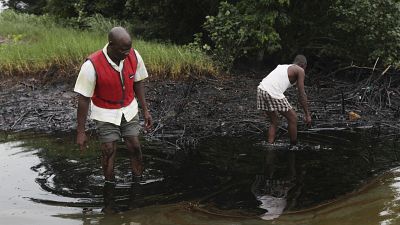

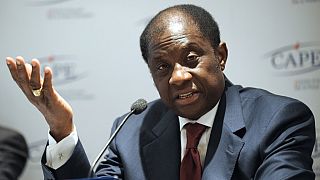
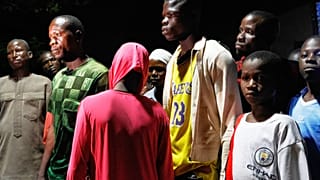
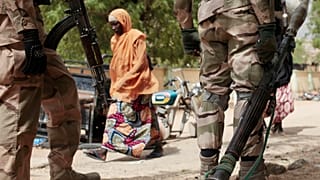
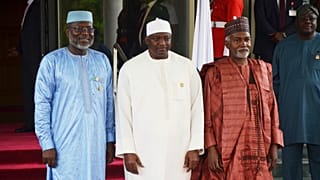
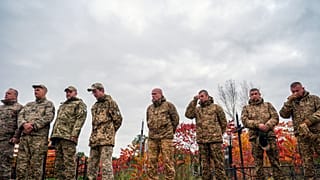
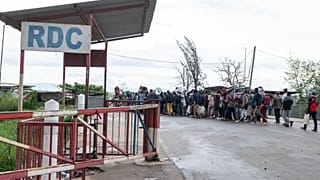

01:00
Ukrainian drone strike injures seven in Russia's Tver, causes fire, evacuation
01:12
Mozambique: surge in violence displaces more than 100,000 people
01:16
Somali fishing industry leader says piracy puts livelihoods at risk
Go to video
Suspected pirates board merchant vessel off coast of Somalia
Go to video
Nigerian billionaire plans expansion of Africa's biggest oil refinery
00:50
Sudan civil war: RSF claims capture of army headquarters in El Fasher